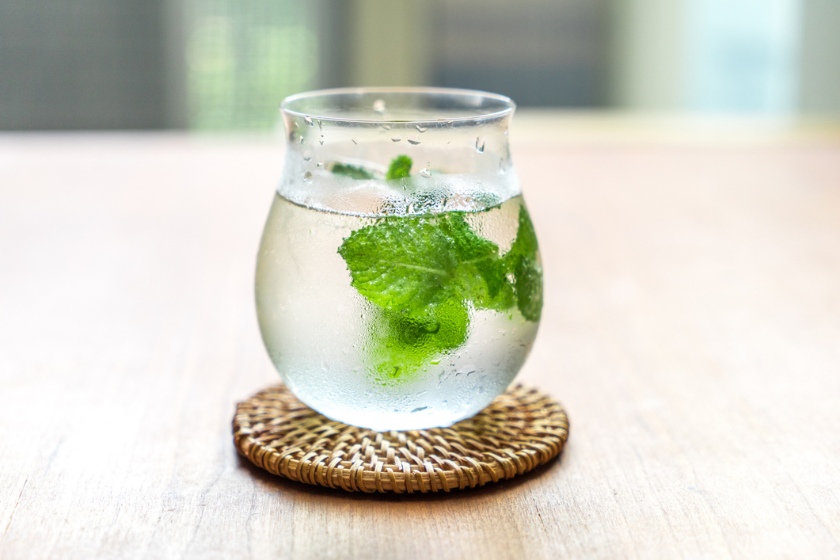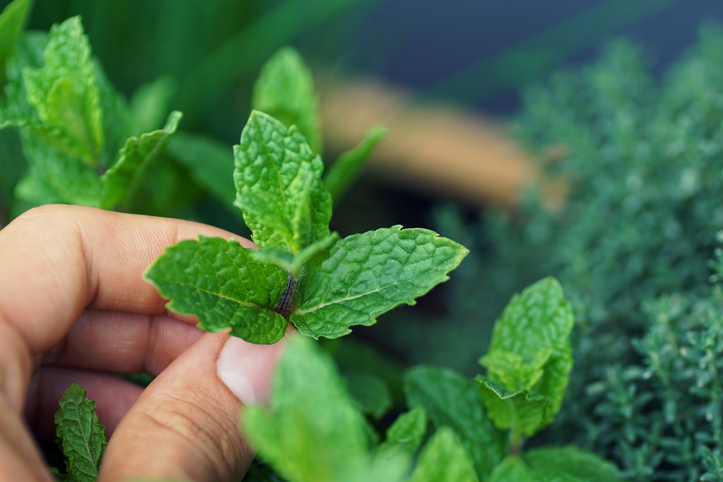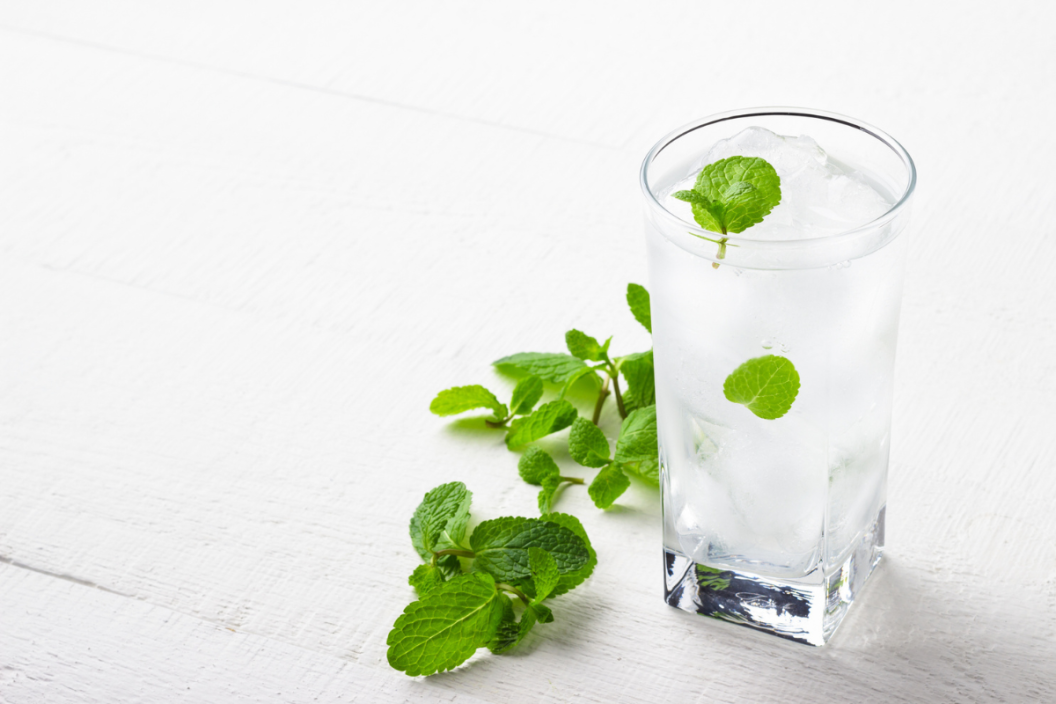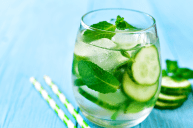As the days get warmer, it gets increasingly important to stay hydrated by drinking water, but sometimes I just really don't want to drink plain water. It's so boring! This is a big reason why lemon water is so popular, but sometimes you aren't in the mood for citrus. Instead of going for the sugary juices, I have become addicted to the uplifting taste and benefits of drinking mint water.
I first fell in love with mint as a kid. I basically had a constant upset stomach, so my mom would make me peppermint tea for its soothing effect all the time. It became such a comforting taste for me, and once I became a gardener, mint was one of the first things I planted. Just as a warning, plant mint in containers, not the ground, or it will take over your whole garden! Now I have a few different kinds of mint and spearmint growing, and it comes back prolifically every year. Mint is one of the easiest things to grow, which certainly makes mint water convenient.
How To Make Mint Water

Mint water is so easy to make. You just pick some mint leaves, rinse them and give them a good smack to release the flavor, and throw them in some filtered water! That's it! You can also add other flavors like lemon juice or orange slices. One of my favorite refreshing drinks after a long, hot day in the garden is to take my mint water and add frozen strawberries as ice cubes. You will also commonly see a giant mason jar on my porch sitting in the sun full of mint. Sun tea is one of my favorite ways to make tea, as it slowly releases all the flavors. But it's important not to do this with fruit, as the sun heat is a perfect breeding ground for bacteria. It works well to make mint tea though because mint has anti-bacterial properties and is antiseptic!
Mint water is safe to drink every day, and the medicinal properties and health benefits of mint will make you want to! Not only is it rich in vitamin A and antioxidants, but the menthol in mint (and mint essential oil) is extremely helpful for digestive issues such as IBS, bloating, upset stomach, and indigestion because of its anti-inflammatory properties and digestive enzymes. There's also a reason most toothpaste are mint flavored: it's great for oral health and bad breath. I commonly will chew on some mint leaves as I'm working outside in the garden. I can't pass the mint plant without picking some! As with most herbs, the more you trim and pick mint, the better and thicker it grows.

Getty Images
You can also use mint for balms and salves. I use mint balm on sore muscles, and I've found there isn't better natural help with headaches than the aromatherapy of mint. When I had a toothache that gave me migraines, I commonly disappeared in a dark minty cloud as I chewed on mint, bathed with mint leaves, and rubbed peppermint oil into my temples.
I highly recommend planting mint outside your house (again! in containers! I mean it!). Not only does it deter pests like ants, mice, flies, and mosquitoes, but it's also extremely useful. Put some of that mint from your garden in your water this spring and summer and watch how much more hydrated and healthy you are!




